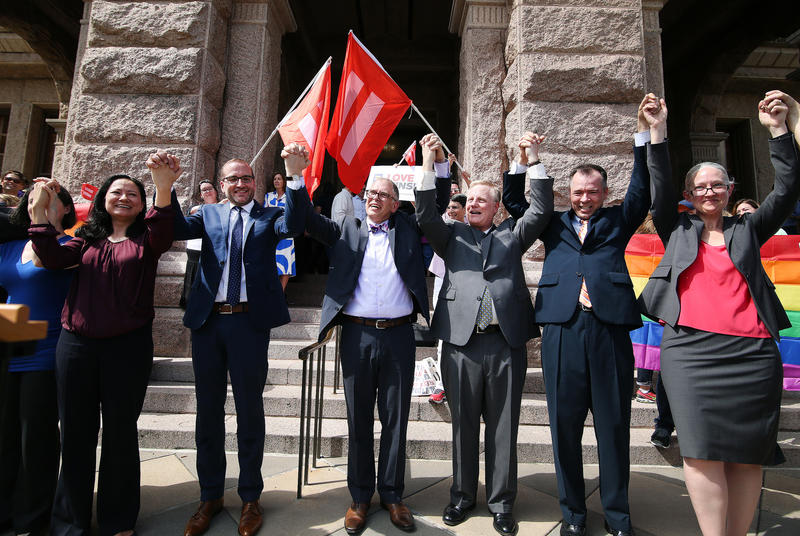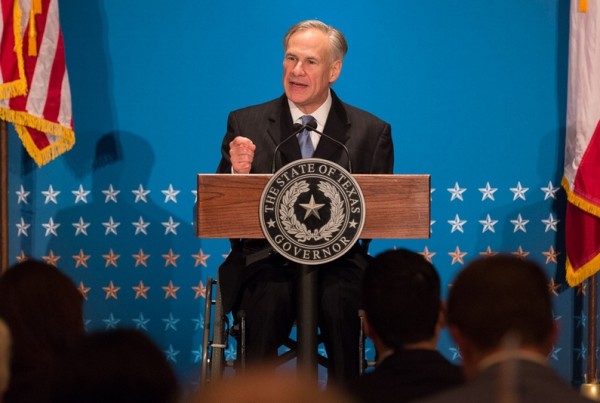This story originally appeared on KUT.
Following last year’s Supreme Court ruling that legalized gay marriage nationwide, there’s been a debate about whether that landmark civil rights ruling, Obergefell v. Hodges, would hinder religious freedoms. Republican state leaders say that’s why they want the legislature to consider laws that they say would protect those freedoms in Texas.
“Nobody here argues that religious freedom isn’t a fundamental freedom in this country. The question is, does religious freedom give you the right to use your faith beliefs to discriminate against those that don’t share them?” says Dan Quinn with a group called the Texas Freedom Network. Quinn, along with the ACLU of Texas, says that in the past these efforts have resulted in laws akin to religious refusal. That is, laws that allow someone to deny services or rights to other people because of their religious beliefs.
“When it comes right down to it, religious freedom is not the right to discriminate,” Quinn argues. “Religious freedom has never been defined that way in this country. And it would be a tragedy if we now allow this fundamental freedom to be redefined in a way that allows people to use religion to harm other people.”
But to counter, Jonathan Saenz with the group Texas Values argues that “to be able to have faith and freedom exist together means that there has to be mutual respect.”
Saenz says that recent rulings on same-sex rights have led to laws that disrespect the religious beliefs of people who are against same-sex marriage. He says a lot of Texans feel this is a state where that shouldn’t happen.
“I think they are going to hear about people in the private area and people that are faith-based that, they don’t want the government punishing people because of their religious beliefs.”
There have been various legal battles around the country tackling this very issue.
In fact, the U.S. Supreme Court is expected to rule on a case in which a group of nuns in Colorado want to stop their employees from receiving birth control under the Affordable Care Act. Their claims are religious freedom protections. However, with the recent passing of Justice Antonin Scalia, one of the court’s most conservative justices, the national ramifications of that ruling will be hard to predict.
In the meantime, Texas Attorney General Ken Paxton sent a letter to legislative leaders asking them to consider ten different changes to current state law aimed at protecting religious freedom. Those include laws regarding adoption and allowing judges and others to refuse to officiate weddings that they claim violate their religious beliefs.















